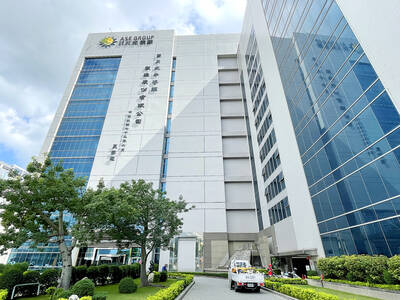The Financial Supervisory Commission (FSC) is considering relaxing regulations on securities investment consulting services with robo-advisors, the commission said on Tuesday.
Given that investors are embracing automated investing, the move would help companies provide innovative service, it added.
Relaxing regulations would help companies that have developed algorithms to execute rebalancing operations provide retail investors with better management service, the commission said.
Rebalancing operations are re-adjustments of asset allocations in a recommended investment portfolio to meet customers’ level of risk tolerance, the commission said.
For example, an investor might allocate 60 percent of their assets to stocks and 40 percent to bonds, it said.
However, the asset allocation might change to 70 percent and 30 percent respectively, if stocks are rising, the commission said.
Under the commission’s current regulations, robo-advisors must automatically dispose of some investment targets to restore the risk exposure that investors want, it said.
However, some securities and investing companies hope that the regulations can be relaxed so that robe-advisors could decide the ideal allocation for the investors, a strategy expected to generate a higher return as robo-advisors can utilize big data analysis and are not driven by emotions, the commission said.
As of the end of last month, robo-advisors this year managed funds totaling NT$2.29 billion (US$80.32 million), up 123 percent from NT$1.03 billion at the end of last year, with 81,512 investors using the service, up 2.5 times from the end of last year, it said.
Thirteen financial firms as of last month offered automated portfolio advisory, up from nine at the end of last year and six at the end of 2018, the commission said.

EXPANSION: The investment came as ASE in July told investors it would accelerate capacity growth to mitigate supply issues, and would boost spending by 16 percent ASE Technology Holding Co (ASE, 日月光投控), the world’s biggest chip assembly and testing service provider, yesterday said it is investing NT$17.6 billion (US$578.6 million) to build a new advanced chip packaging facility in Kaohsiung to cope with fast-growing demand from artificial intelligence (AI), high-performance-computing (HPC) and automotive applications. The new fab, called K18B, is to commence operation in the first quarter of 2028, offering chip-on-wafer-on-substrate (CoWoS) chip packaging and final testing services, ASE said in a statement. The fab is to create 2,000 new jobs upon its completion, ASE said. A wide spectrum of system-level chip packaging technologies would be available at

Taiwan’s foreign exchange reserves hit a record high at the end of last month, surpassing the US$600 billion mark for the first time, the central bank said yesterday. Last month, the country’s foreign exchange reserves rose US$5.51 billion from a month earlier to reach US$602.94 billion due to an increase in returns from the central bank’s portfolio management, the movement of other foreign currencies in the portfolio against the US dollar and the bank’s efforts to smooth the volatility of the New Taiwan dollar. Department of Foreign Exchange Director-General Eugene Tsai (蔡炯民)said a rate cut cycle launched by the US Federal Reserve

HEAVYWEIGHT: The TAIEX ended up 382.67 points, with about 280 of those points contributed by TSMC shares alone, which rose 2.56 percent to close at NT$1,400 Shares in Taiwan broke records at the end of yesterday’s session after contract chipmaker Taiwan Semiconductor Manufacturing Co (TSMC, 台積電) hit a fresh closing-high amid enthusiasm toward artificial intelligence (AI) development, dealers said. The TAIEX ended up 382.67 points, or 1.45 percent, at the day’s high of 26,761.06. Turnover totaled NT$463.09 billion (US$15.22 billion). “The local main board has repeatedly hit new closing highs in the past few sessions as investors continued to embrace high hopes about AI applications, taking cues from a strong showing in shares of US-based AI chip designer Nvidia Corp,” Hua Nan Securities Co (華南永昌證券) analyst Kevin Su

Nvidia Corp’s major server production partner Hon Hai Precision Industry Co (鴻海精密) reported 10.99 percent year-on-year growth in quarterly sales, signaling healthy demand for artificial intelligence (AI) infrastructure. Revenue totaled NT$2.06 trillion (US$67.72 billion) in the last quarter, in line with analysts’ projections, a company statement said. On a quarterly basis, revenue was up 14.47 percent. Hon Hai’s businesses cover four primary product segments: cloud and networking, smart consumer electronics, computing, and components and other products. Last quarter, “cloud and networking products delivered strong growth, components and other products demonstrated significant growth, while smart consumer electronics and computing products slightly declined,” compared with the